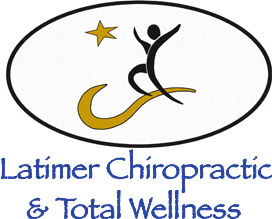The research is published online in the May 16 edition of Cell Metabolism.
Brought to you by Latimer Chiropractic
Becky McCall May 20, 2019
People eating a diet of ultra-processed food consumed more calories and gained more weight than those on a minimally-processed diet, despite meals being matched, shows a small randomized controlled trial (RCT) by the US National Institutes of Health (NIH).
The results of the study suggest that limiting consumption of ultra-processed foods may be an effective strategy for obesity prevention and treatment, write the authors, led by Kevin Hall, PhD, from the National Institute of Diabetes and Digestive and Kidney Diseases (NIDDK) in Bethesda, Maryland.
Twenty inpatients at the NIH Clinical Center took part, equally split between men and women, and the authors note that this small-scale study is the first randomized controlled research of its kind.
"Though we examined a small group, results from this tightly controlled experiment showed a clear and consistent difference between the two diets," said Hall in a press release from NIH, adding that, "this is the first study to demonstrate causality — that ultra-processed foods cause people to eat too many calories and gain weight."
Participants gained nearly a kilogram during the ultra-processed diet (0.9 kg; P = .009), which is around 2 lb, and lost a similar amount of weight (0.9 kg; P = 0.007) while on the unprocessed diet.
Also, on the ultra-processed diet, people ate about 500 calories more per day, and ate faster compared with those on the unprocessed diet.
Ultra-processed Foods Common Worldwide: Driving Obesity Epidemic?
All participants received three daily meals and were free to eat as much or as little as desired within 1 hour. Meals were designed to be well matched across diets for total calories, energy density, macronutrients, fiber, sugars, and sodium, but differed widely in the percentage of calories derived from ultra-processed vs unprocessed foods.
As an example, an ultra-processed breakfast might consist of a bagel with cream cheese and turkey bacon, whereas the minimally processed breakfast was oatmeal with bananas, walnuts, and skim milk.
Energy expenditure, and average energy expenditure, respiratory quotient, sleeping energy expenditure, body composition, and liver fat were measured.
